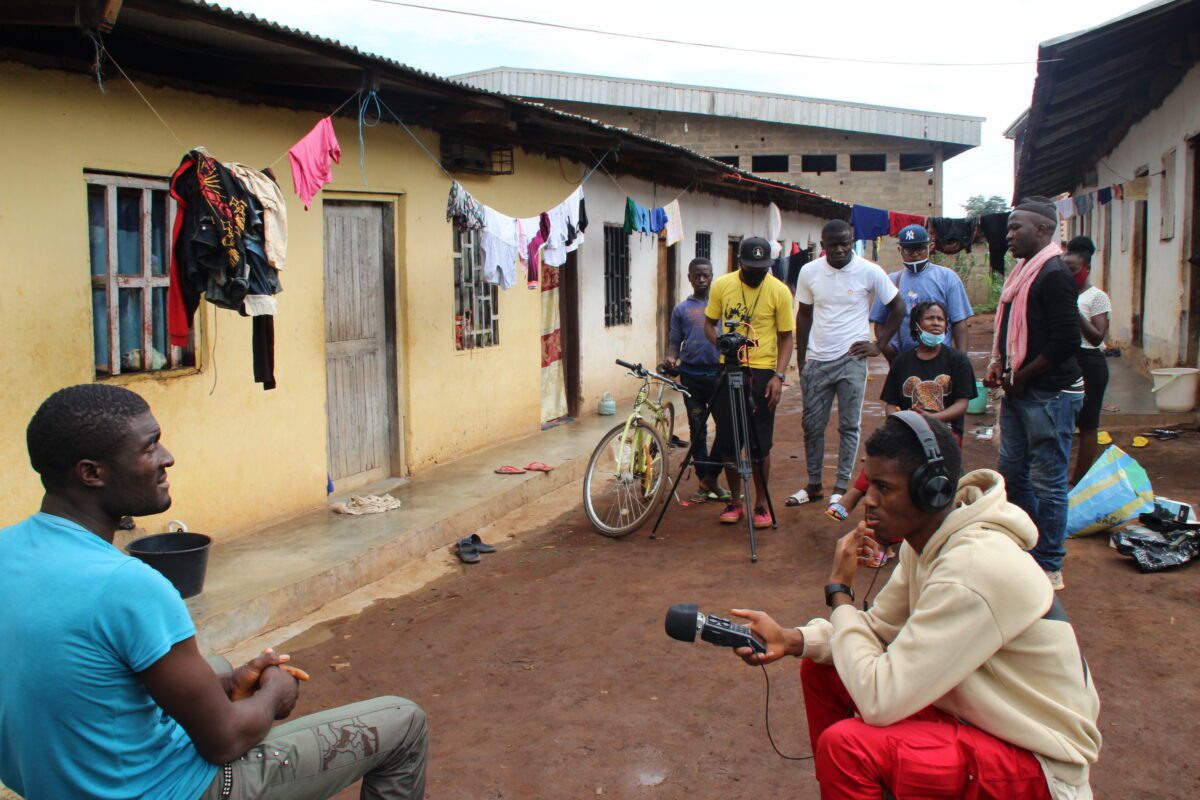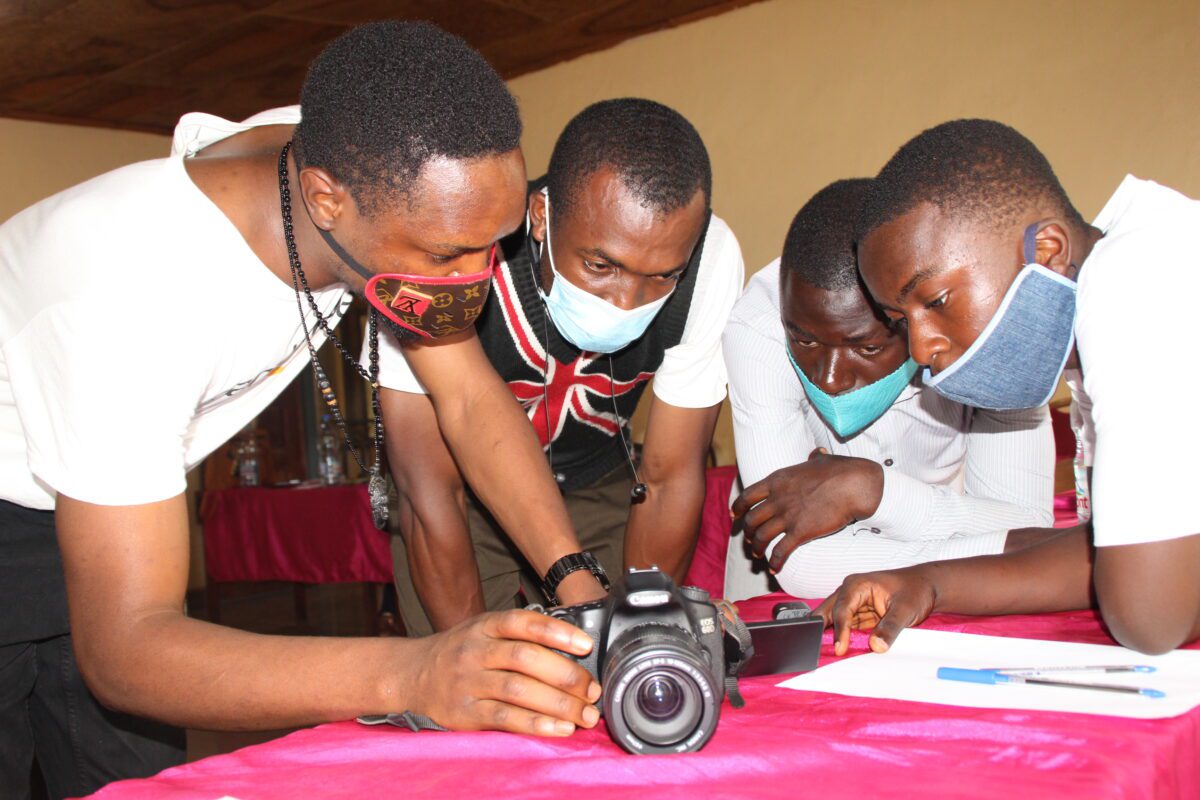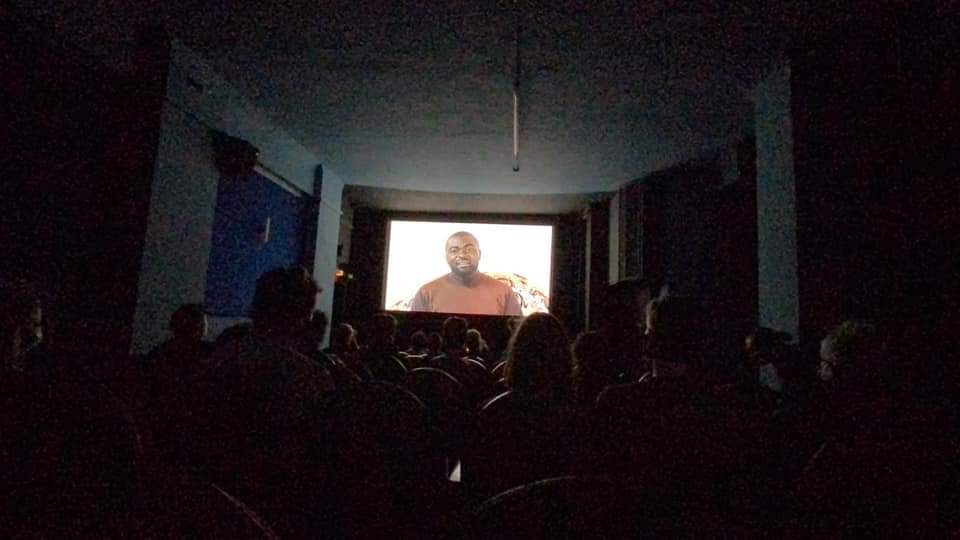In Bamenda, Cameroon, Dzebam Godlove and a team of like-minded human rights, film and media creatives form part of an organization called Draufsicht Bamenda. Draufsicht is based in Berlin, Germany, but has a partner organization in Cameroon as a means of facilitating cross-cultural learning and discussions based on community-produced documentary films that cover a wide range of topics, including access to health services.
“Draufsicht Bamenda is an association of young people interested in global learning [with] the aim of looking for local solutions to global problems through film-making. We use film-making as a strategy.”
Dzebam Godlove, coordinator

The organisation has produced films on a wide variety of topics including Sustainable Development Goal (SDG) number 10 about inequalities within society and more specifically how that relates to inequalities within both Cameroon and Germany. “We’ve also made films on the debt crisis, what is the amount of debt that Cameroon owes as a country and what is the impact on the present generation,” says Godlove.
Collaborating with the Berlin team can be logistically tricky, but through the use of Whatsapp groups and calls, the two teams share topic ideas for films and allow members from both Germany and Cameroon to engage with one another as a means of facilitating inter-cultural communication.
Draufsicht Bamenda works with students and young people, teaching them film making skills and engaging with them on other global issues, such as emigration and fair trade industry, that affect them. “[It’s a] diverse group of people, young journalists, filmmakers, techies, sound engineers. As a group, we consolidate diversity to achieve common film objectives,” says Viban Promise, one of the team members at the organization.

Once a film is produced, Draufsicht Bamenda hosts community screenings followed by a discussion that seeks to inspire bottom-up solutions.
“We screen films on hot topics in communities, migration being one of them. A lot of young people want to go to Europe, and are under the impression it’s a sort of ‘Eldorado’ for their dreams,” says Godlove, “but you can still end up sleeping in tunnels (homeless), and young people don’t understand the complexities of this.”
The community film screenings catalyze change, says Godlove. For example, the organization once screened a film about waste management, which is a major challenge in Bamenda. Following the screenings, new measures were put in place in some local schools to increase recycling and proper disposal of rubbish. They have also screened films on social issues such as gender based violence in order to generate positive and mindful discussions within communities. “We can’t measure the extent of the change, but the impact is noticeable,” Godlove emphasizes.

Apart from film work, Draufsicht works with community journalists, school children and even inmates at the Bamenda prison. Godlove and his team act as a liaison between the Bamenda correctional facility and the community. They mobilize support for the collection of much needed sanitation and hygiene items for prisoners. Prior to the COVID-19 pandemic, they also offered health education classes to inmates.
“The majority of inmates in the prison system were arrested as a result of ongoing wars in the country, most are victims of military passage,” says Sama Mildred, communications officer with Bamenda. The prison in Bamenda currently has roughly 5,000 inmates, but this number continues to grow as other facilities in Cameroon are burnt down or destroyed due to ongoing unrest in the country.
The organization also offers reporting support and safety training to 60 journalists working in conflict zones within Cameroon. Last, but not least, they partner with other local civil society organizations to create safe spaces for school children when school is not in session. This initiative was especially critical during the pandemic lockdowns.
To find out more about this HJN member visit their website!